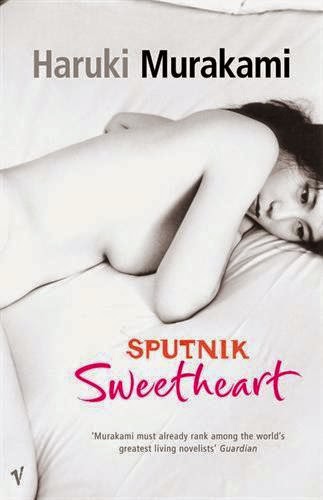Title: Sputnik Sweetheart
Author: Haruki Murakami
Length: 210 pages
Year Written: 1999
Why I chose this book: I really enjoy Murakami. I bought this book in September 2012 and never finished it until now. The receipt from Barnes and Noble was still inside.
This book is so Murakami. You can spot Murakami a mile away. If you've read one of his novels, you've read most of his novels — and I don't mean that in a bad way. The first two books I read by Murakami were After Dark and Hardboiled Wonderland and the End of the World, for an Asian-American literature class I took during my senior year of college. These two were OK but I wasn't truly blown away until I read South of the Border, West of the Sun. Murakami really knows how to write about passion without sounding corny or overwrought with dramatic desire. Then, I read Kafka on the Shore, which showed a more complex and supernatural side of Murakami. Anyway, on to the book at hand — Sputnik Sweetheart shares many of the same themes as several of Murakami's other novels, including weird Freudian love triangles and escape into other-wordly realms. It is about a girl named Sumire who falls in love with an older woman, Miu, and eventually vanishes seemingly right off the face of the earth. The book is told from the perspective of Sumire's friend, a relatively easygoing guy who happens to be madly in love with her.
This was a really quick read, being just north of 200 pages and so engagingly written as well. It certainly provoked a lot of thought with me, about loneliness, love, desire, human existence, all those things that leave you feeling mildly panicked if you dwell on them too long.
Rating: 9.5/10






